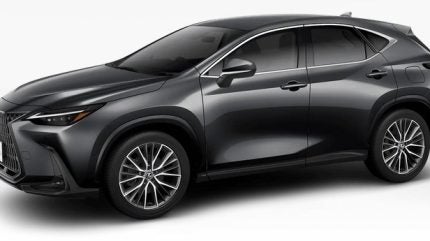
Taiwan’s new vehicle market expanded by 5% to 27,515 units in February 2025 from 26,267 units in the same month of last year, according to registration data compiled by Taiwan’s Ministry of Transportation.
Vehicle sales bounced only modestly last month from weak year-earlier volumes, and also following a sharp decline in January, when the market was affected by fewer working days due to the Lunar New Year holidays. Overall vehicle demand in the country has weakened significantly in recent months, following two years of strong growth, reflecting a slowdown in economic growth. GDP growth slowed to 1.8% in the fourth quarter of 2024, from 4.2% in the third quarter, with private consumption and government spending both weaker.

Discover B2B Marketing That Performs
Combine business intelligence and editorial excellence to reach engaged professionals across 36 leading media platforms.
In the first two months of the year the vehicle market declined by 12% to 62,579 units from 71,087 units in the same period of last year, with sales of domestically-produced vehicles dropping by 21% to 31,685 units while import sales were just slightly lower at 30,894 units. Sales of battery electric vehicles (BEVs) plunged by around 25% to 4,217 units.
Toyota continued to lead the overall vehicle market with sales rising by 3.5% to 21,121 units year-to-date; followed by its Lexus division with a 22% increase to 6,067 units; Mercedes-Benz with 4,802 units (+5.5%); China Motor 4,001 (+9%); Honda 2,995 units (-38%); BMW 2,330 (-2%); Hyundai 2,256 (-48%); Nissan 2,027 (-36%); and Mazda 2,016 (-6%).
Hotai Motor, the distributor of Toyota, Lexus and Hino brands, last month said it expected to sell 165,000 vehicles in 2025 to claim a market share of close to 37%. It plans to introduce new models including the Alphard PHEV and the new Land Cruiser 250, while pushing forward the Lexus Electrified strategy. The company said it expects the overall vehicle market to remain “resilient” this year, with overall sales exceeding 450,000 units compared with 457,837 in 2024.
Last year Taiwan reintroduced minimum local content requirements for locally-assembled vehicles – regulations that had been discontinued more than two decades ago. Under the new rules locally-assembled vehicles are required to have a minimum local content of 15% in their first year of production, rising to 25% in the second year and 35% in the third year. The government claims the new regulation is mainly aimed at ensuring minimum safety standards while also protecting the country’s component sector. As Taiwan does not allow direct imports of built-up vehicles from China, the ruling is expected to slow the entry of Chinese brands into the market.






